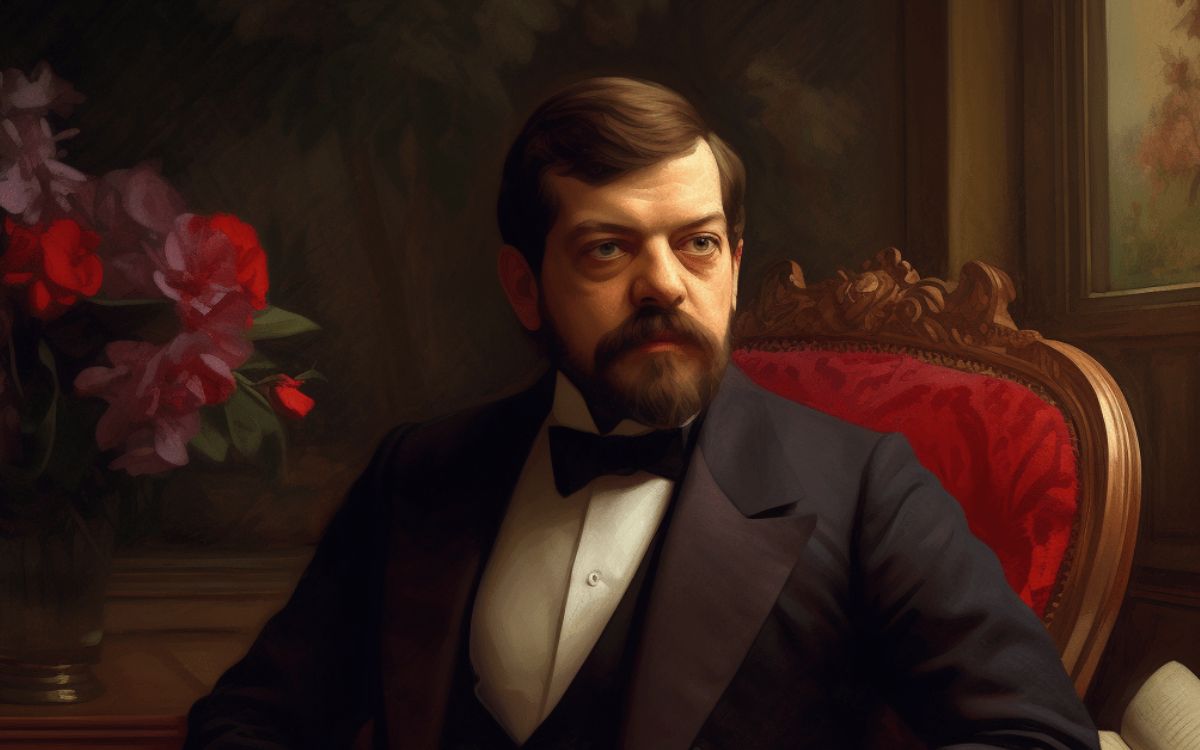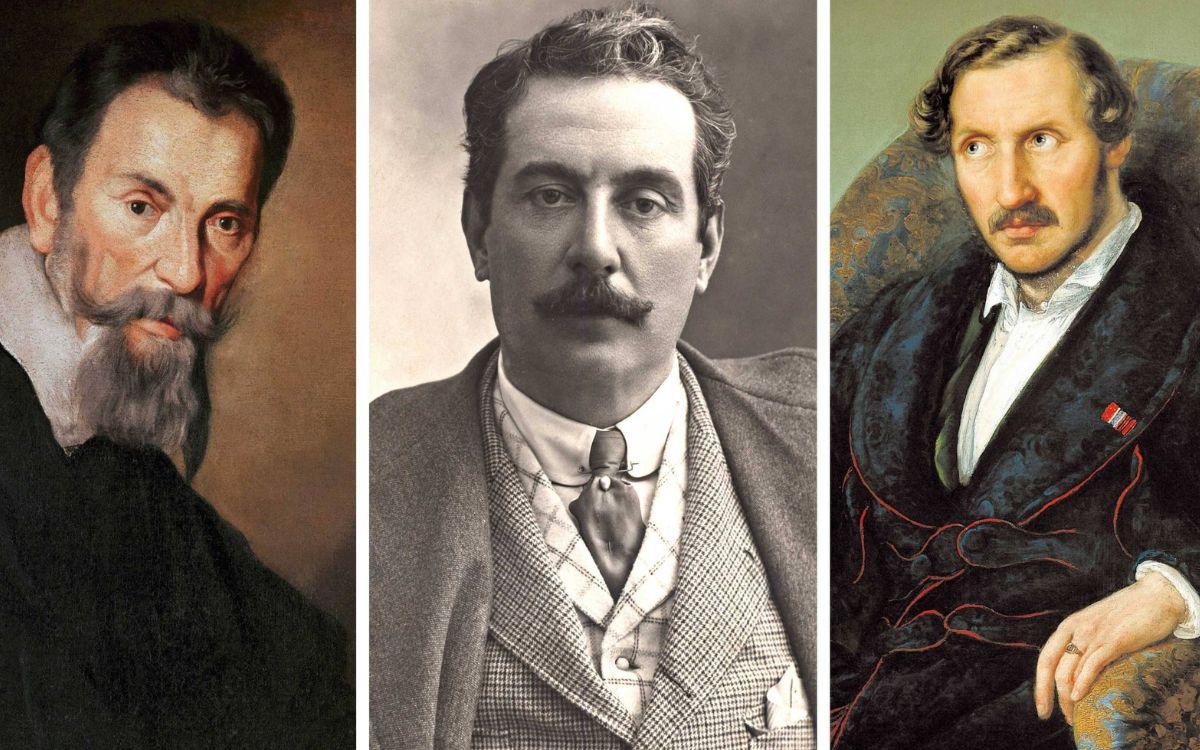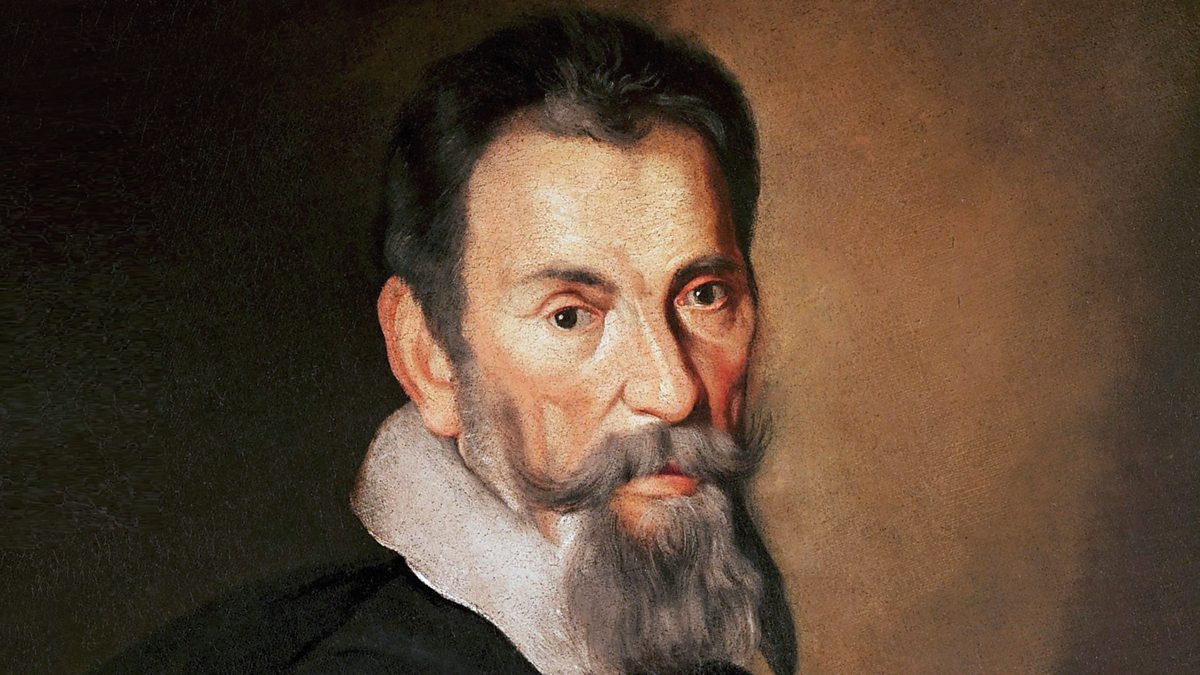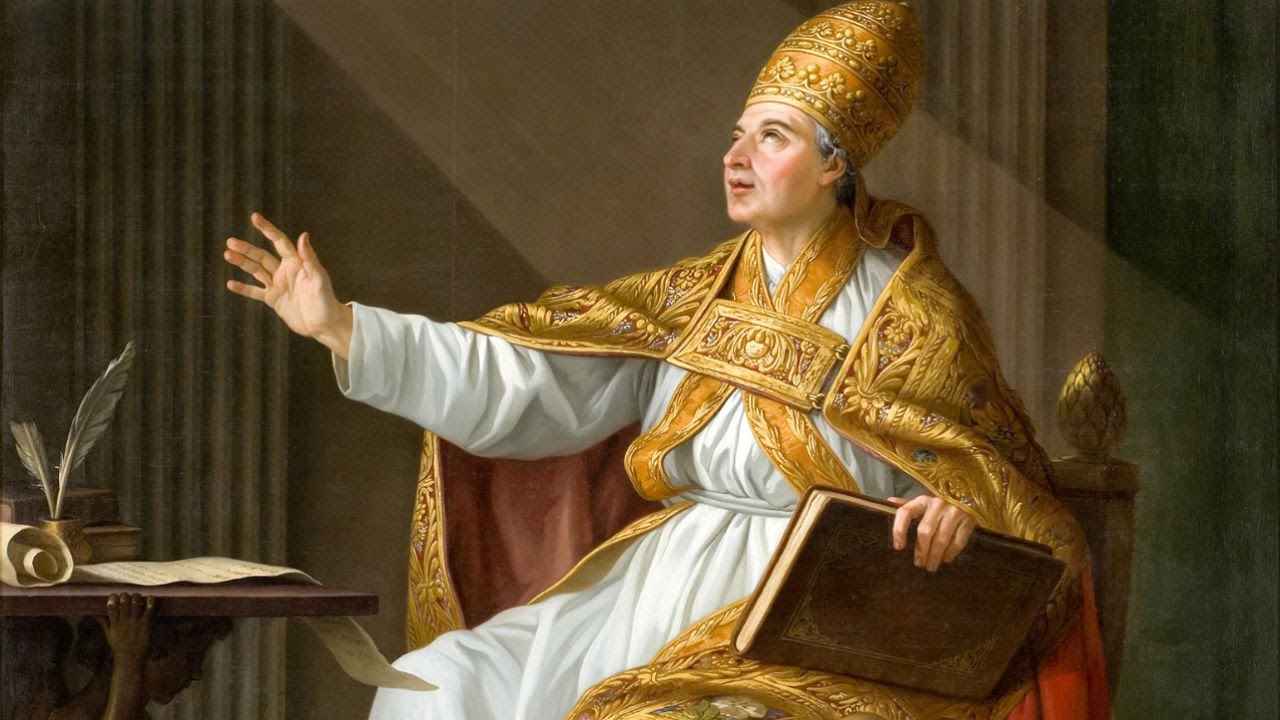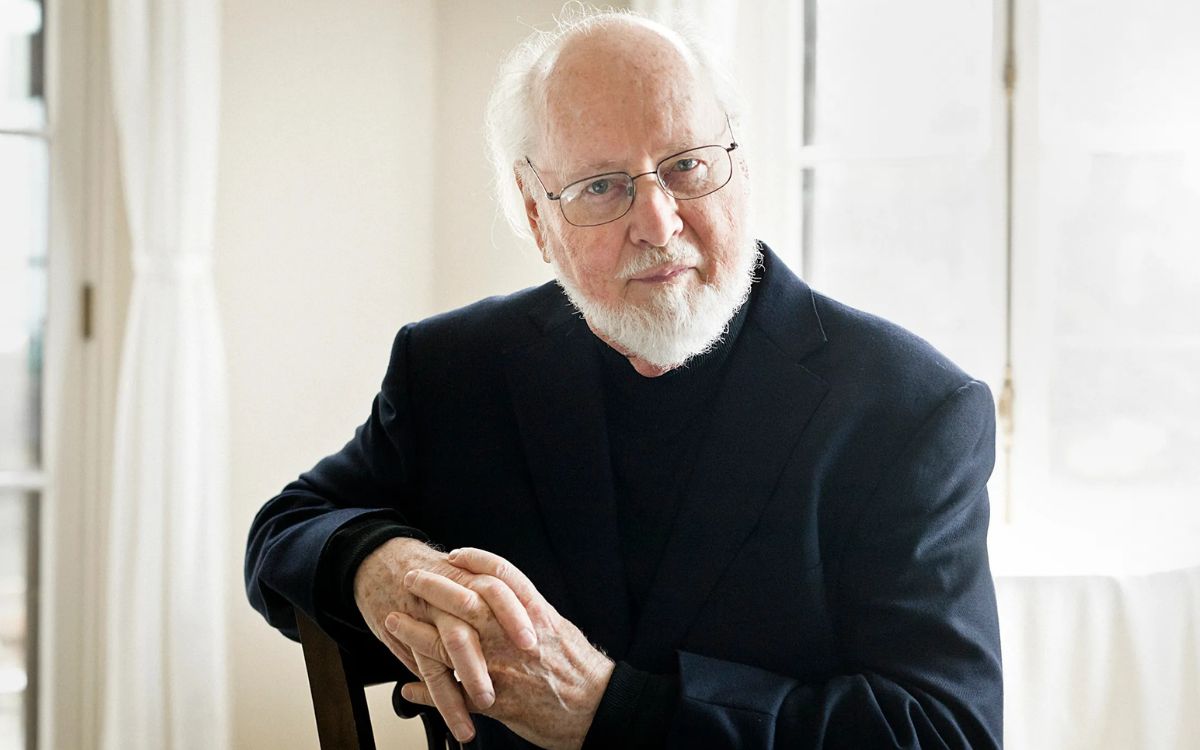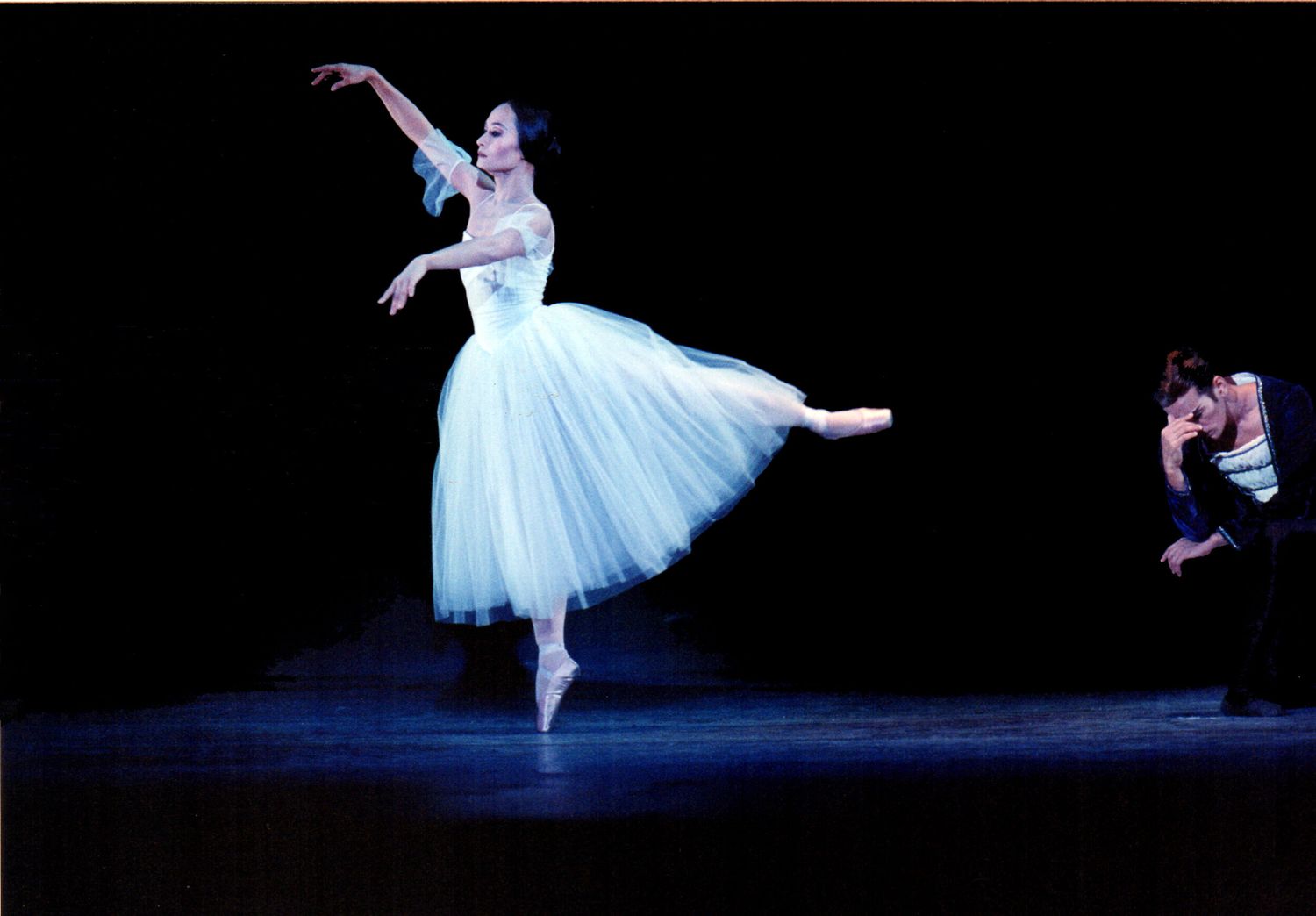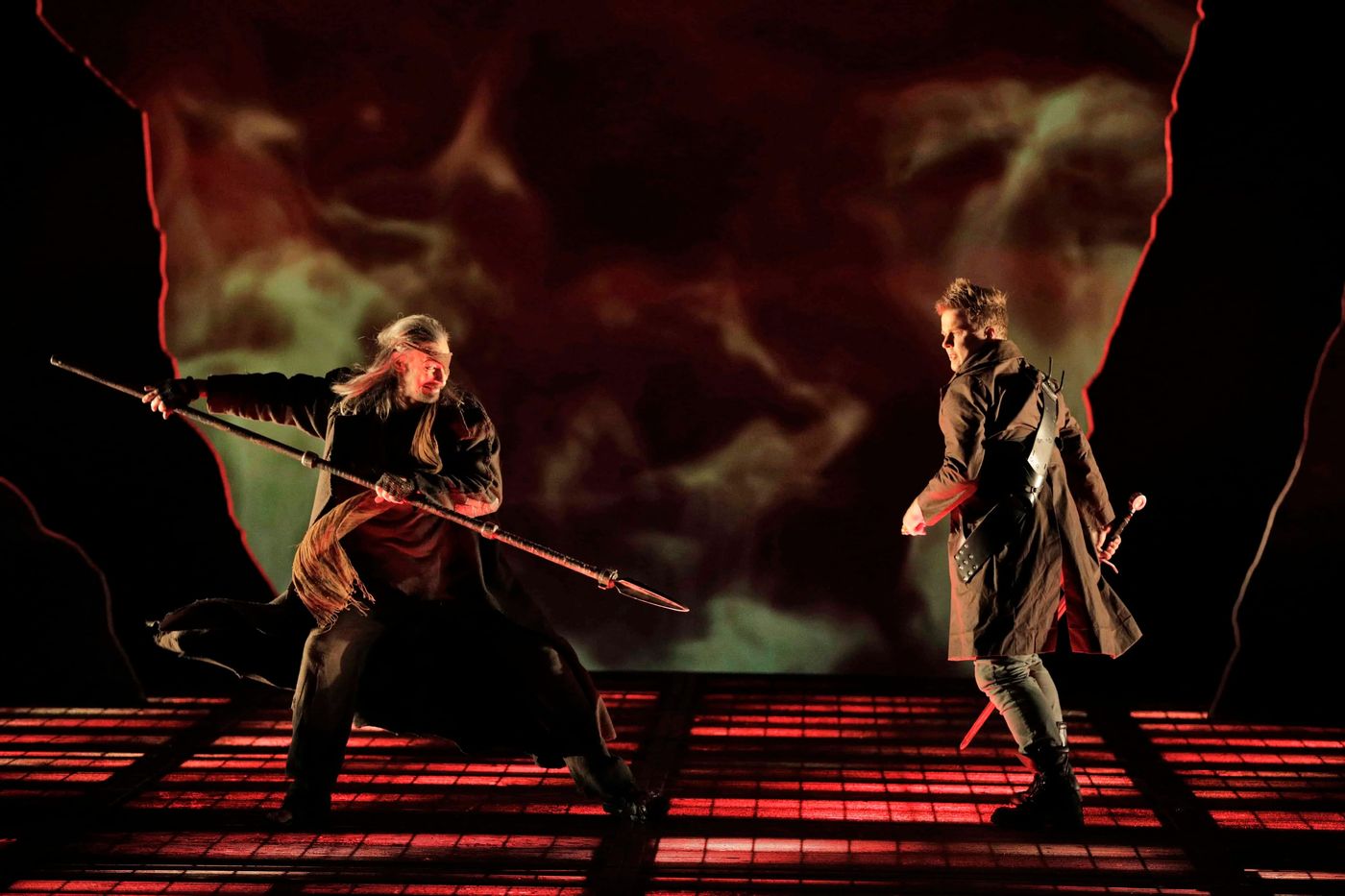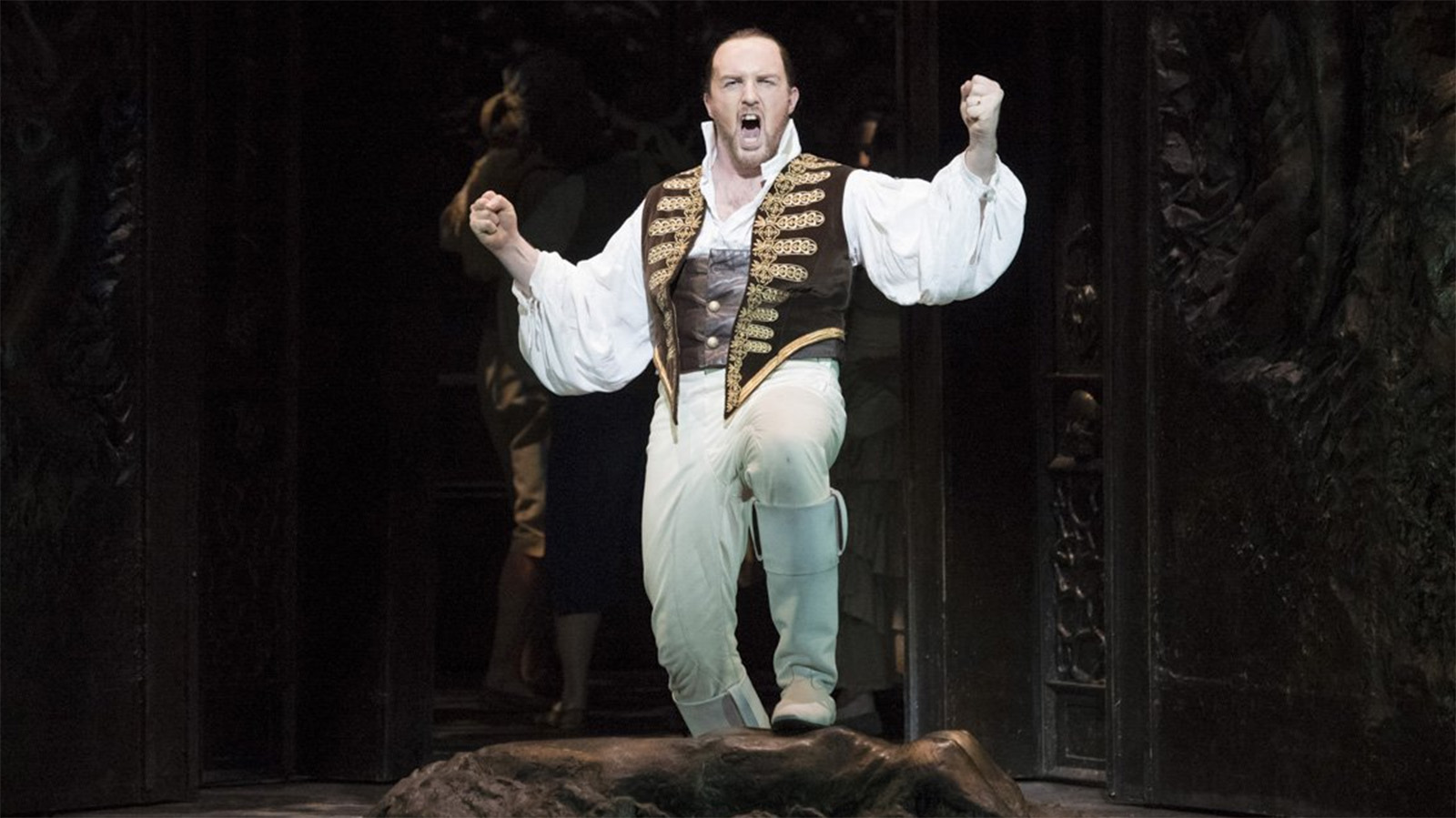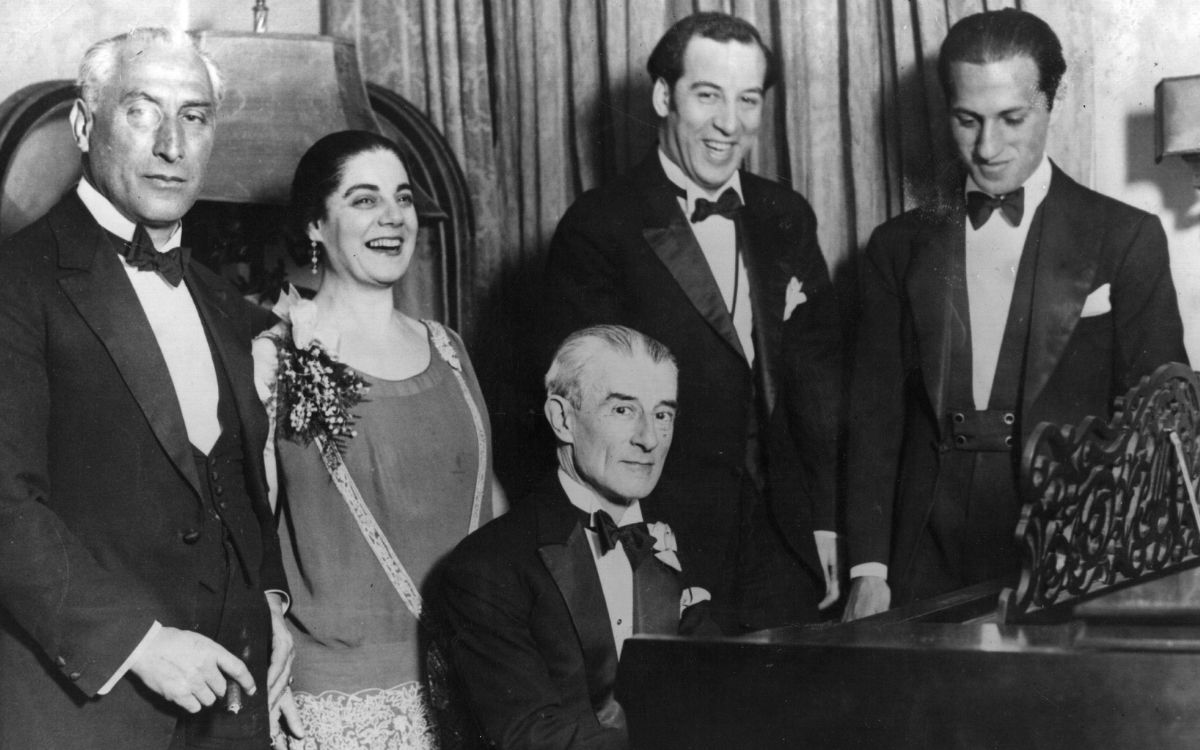Home>Events & Info>Opera>Who Composed The Opera Dido And Aeneas
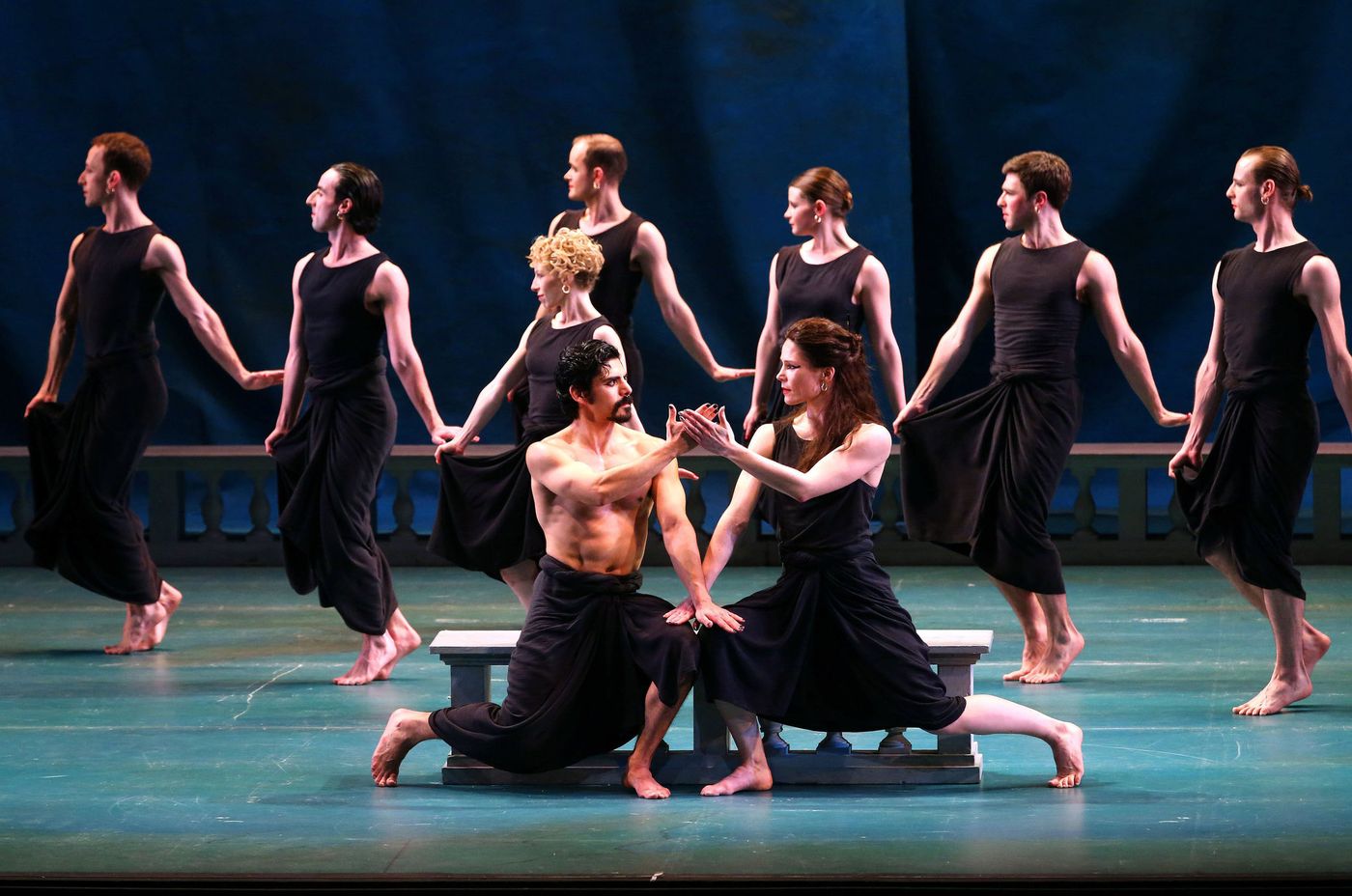

Opera
Who Composed The Opera Dido And Aeneas
Published: January 7, 2024
Discover the mastermind behind the opera Dido and Aeneas, a captivating masterpiece composed by one of the greatest minds in the world of opera. Explore the magical world of this iconic opera.
(Many of the links in this article redirect to a specific reviewed product. Your purchase of these products through affiliate links helps to generate commission for AudioLover.com, at no extra cost. Learn more)
Table of Contents
Introduction
The opera is a spellbinding art form that combines music, drama, and visual spectacle to create a truly immersive experience. One of the most beloved and enduring operas of all time is “Dido and Aeneas,” a tragic tale of love and betrayal. This exquisite work, composed by the legendary Henry Purcell, has captivated audiences for centuries with its timeless melodies and stirring emotional depth.
In this article, we will delve into the fascinating world of “Dido and Aeneas,” exploring its origins, synopsis, and the enduring legacy it has left on the operatic landscape. Along the way, we will uncover the genius of Henry Purcell, the mastermind behind this extraordinary masterpiece.
Henry Purcell, born in 1659, was a prodigious talent from a young age. Despite his tragically short life, he left an indelible mark on the world of music, and “Dido and Aeneas” is considered one of his crowning achievements. Purcell’s innate understanding of human emotions and his ability to translate them into music allowed him to create a truly captivating and moving opera.
With its timeless themes of love, loyalty, and sacrifice, “Dido and Aeneas” tells the compelling story of the Queen of Carthage, Dido, and her ill-fated love affair with the Trojan hero, Aeneas. The opera encompasses a range of emotions, from the joyous celebration of love to the heart-wrenching sorrow of betrayal and loss.
As we journey through the history and impact of “Dido and Aeneas,” we will discover the depths of human emotion that Purcell masterfully captures in his music. From the electrifying overture to the hauntingly beautiful lament “When I Am Laid In Earth,” the opera is a rich tapestry of musical genius that continues to enrapture audiences today.
Join us as we explore the remarkable story behind “Dido and Aeneas” and pay homage to the genius of Henry Purcell. Prepare to be transported into a world of passion, tragedy, and timeless beauty as we unravel the enchanting tale of this seminal opera.
Early Life of Henry Purcell
Henry Purcell, born on September 10, 1659, in London, was a highly influential English composer during the Baroque period. Although not much is known about his early years, it is believed that his father, Henry Purcell Sr., was a musician who played the trumpet. This likely played a significant role in shaping young Henry’s musical inclinations.
From a young age, Purcell showed exceptional talent in music. He received early musical training from his uncle, Thomas Pursell, who was also a musician at the Chapel Royal. It was here that Purcell honed his skills in composition and performance, setting the foundation for his future success.
At the age of 18, Purcell secured a position as an organist at Westminster Abbey, a prestigious appointment for such a young talent. This role allowed him to work alongside some of the leading composers and musicians of the time, immersing himself in the rich musical traditions of the era.
Purcell’s early compositions demonstrated his innate ability to combine elements of English and continental musical styles. He effortlessly blended the grandeur of the French courtly music with the expressive melodies of the Italian Baroque, creating a unique and distinctive sound.
Despite his exceptional talent and early success, Purcell’s life was cut tragically short. He passed away at the age of 36, leaving behind a profound musical legacy that continues to inspire and captivate audiences to this day. His compositions, including “Dido and Aeneas,” serve as a testament to his exceptional talent and artistic vision.
As we delve deeper into the world of “Dido and Aeneas,” it is essential to understand the incredible background and musical upbringing that shaped Henry Purcell into the visionary composer he became. His early experiences and exposure to the rich musical traditions of the time laid the foundation for his future masterpieces, leaving an indelible mark on the world of opera and classical music.
The Creation of Dido and Aeneas
“Dido and Aeneas” holds a special place in the history of opera as one of the earliest English-language operas and a masterpiece of Henry Purcell. The origins of this iconic work can be traced back to the late 1680s when the court of Charles II in England was undergoing a revival of theatrical entertainment.
While the exact circumstances surrounding the creation of “Dido and Aeneas” remain somewhat unclear, it is believed that the opera was commissioned by Josias Priest, the headmaster of a boarding school for girls in Chelsea. The performance was intended to be part of the end-of-year festivities at the school.
Purcell collaborated with poet Nahum Tate, who provided the libretto based on Book IV of Virgil’s epic poem, “The Aeneid.” The story revolves around the love affair between the Queen of Carthage, Dido, and the Trojan hero, Aeneas. The libretto expertly weaves together elements of love, duty, betrayal, and fate.
Even though “Dido and Aeneas” was originally intended for a performance at a girls’ boarding school, its profound emotional depth and remarkable musicality elevated it far beyond its humble origins. Purcell’s exceptional ability to capture the essence of the characters and the emotional landscape of the story through his music is what sets this opera apart.
The composition of “Dido and Aeneas” showcases Purcell’s mastery of various musical elements. The opera features lyrical arias, energetic and lively dance movements, and deeply expressive choruses. The seamless integration of these different musical components adds depth and richness to the overall composition.
Purcell’s use of recurring themes and motifs throughout the opera helps to unify the narrative and evoke specific emotions. One of the most famous and memorable songs from the opera is “Dido’s Lament” (“When I Am Laid In Earth”), a haunting aria that expresses Dido’s despair and impending doom.
While “Dido and Aeneas” was initially performed in a modest setting, the opera’s reputation grew over time, and it became recognized as a true masterpiece. Today, it is widely regarded as one of the most important and influential works in the operatic repertoire.
The creation of “Dido and Aeneas” marked a pivotal moment in opera history, showcasing the immense talent of Henry Purcell and his ability to create a profound and emotionally resonant work. This opera paved the way for the development of English-language opera and contributed to Purcell’s enduring legacy as one of the greatest composers of his time.
Synopsis of Dido and Aeneas
“Dido and Aeneas” is a tragic opera that follows the ill-fated love story between Dido, the Queen of Carthage, and Aeneas, the Trojan hero. The opera is divided into three acts and is renowned for its emotional depth and powerful storytelling.
Act 1 begins with a lively scene, where Dido’s sister, Belinda, urges her to give in to her love for Aeneas. Belinda believes that their union will bring happiness and prosperity to Carthage. Aeneas, having been shipwrecked on the shores of Carthage, also feels an undeniable attraction towards Dido.
In Act 2, a Sorceress and her evil accomplices plot to disrupt the love between Dido and Aeneas. The Sorceress disguises herself as Mercury, the messenger of the gods, and convinces Aeneas that he must leave Carthage and fulfill his destiny in founding the city of Rome. Aeneas reluctantly agrees to leave, devastating Dido.
The final act, Act 3, portrays the anguish and despair of Dido as she mourns the loss of Aeneas. Dido’s famous aria, “When I am Laid in Earth” (also known as “Dido’s Lament”), showcases her heart-wrenching sorrow and foreshadows her tragic fate. Despite the pleas of Belinda and her court, Dido decides that death is the only escape from her suffering and takes her own life.
The opera also features a chorus that provides commentary on the events unfolding and adds depth to the narrative. Through their collective voice, the chorus expresses the emotions of the characters and reflects the broader implications of their actions.
The tragic love story of Dido and Aeneas explores universal themes of longing, loyalty, and destiny. It delves into the complexities of human emotions, showcasing both the heights of passion and the depths of despair.
Despite its relatively short duration, “Dido and Aeneas” manages to encapsulate a profound and poignant tale, leaving a lasting impact on audiences. The opera not only brings to life the characters’ inner turmoil but also serves as a reflection on the fleeting nature of love and the inevitability of heartbreak.
The timeless beauty and emotional power of “Dido and Aeneas” continue to resonate with audiences, making it a beloved and enduring masterpiece of the operatic repertoire.
Reception and Impact of the Opera
Upon its initial performance, “Dido and Aeneas” received favorable reviews and captured the hearts of audiences with its captivating storytelling and beautiful music. However, it is important to note that during the time of its premiere, English opera was still relatively new, and the genre was not as widely appreciated as Italian and French opera.
Despite the initial reception, “Dido and Aeneas” gradually gained recognition and appreciation over the years, securing its place as one of the most beloved operas of all time. Its impact on the development of English-language opera cannot be understated.
One of the opera’s lasting legacies is its influence on later composers and the genre as a whole. “Dido and Aeneas” showcased the potential for English-language opera to evoke powerful emotions and tell compelling stories. This paved the way for the future growth and flourishing of English opera in the centuries that followed.
The opera’s influence can be seen in the works of notable composers such as Benjamin Britten, who drew inspiration from Purcell’s music and incorporated elements of his style into his own compositions. “Dido and Aeneas” also served as a source of inspiration for other dramatic works, including plays, films, and adaptations in various art forms.
Over time, “Dido and Aeneas” has become ingrained in popular culture, with iconic arias like “When I am Laid in Earth” being performed and recorded by countless artists across different genres. The opera’s rich and emotionally evocative music continues to move and inspire audiences worldwide.
Furthermore, the enduring popularity of “Dido and Aeneas” has contributed to the ongoing recognition and appreciation of Henry Purcell as one of the greatest composers in history. His ability to meld music and drama to create a truly immersive and compelling experience remains a testament to his genius.
It is through the lasting impact of works like “Dido and Aeneas” that the power and beauty of opera continue to be celebrated. The opera serves as a reminder of the ability of music and storytelling to touch the deepest parts of our souls and evoke a wide range of emotions.
As audiences continue to be enthralled by the tragic love story of Dido and Aeneas, the enduring legacy and impact of this remarkable opera ensure that it will be cherished for generations to come.
Legacy of Dido and Aeneas
The legacy of “Dido and Aeneas” extends far beyond its initial performance and the lifetime of its composer, Henry Purcell. This iconic opera has left an indelible mark on the world of music and continues to be celebrated for its emotional depth, musical excellence, and enduring popularity.
One of the opera’s most significant contributions is its role in the development of English-language opera. “Dido and Aeneas” served as a catalyst, inspiring future generations of composers to explore and embrace the potential of opera in the English language. It paved the way for the growth and evolution of the genre, shaping the landscape of opera in Britain and beyond.
Moreover, the opera’s enduring popularity has ensured its place in the operatic repertoire. It continues to be performed on stages around the world, captivating audiences with its timeless themes and beautiful music. Productions of “Dido and Aeneas” range from traditional renditions to innovative and modern interpretations, showcasing its versatility and ability to adapt to different artistic visions.
The music of “Dido and Aeneas” has also had a profound impact outside of the opera world. Its haunting melodies, dramatic arias, and expressive choruses have been embraced by a wide range of musicians and artists. The opera’s influence can be heard in diverse genres, including classical music, popular music, and even film soundtracks. Its enduring legacy is a testament to the universal appeal and timeless quality of its music.
Furthermore, “Dido and Aeneas” has served as a source of inspiration for countless composers and artists. Its powerful storytelling, complex characters, and emotional depth have influenced numerous creative works across different mediums. The tragic love story of Dido and Aeneas continues to resonate with audiences and remains a source of inspiration for those exploring themes of love, loss, and destiny.
Finally, the enduring legacy of “Dido and Aeneas” is intertwined with that of its composer, Henry Purcell. His genius and innovation are showcased in this masterpiece, which has solidified his status as one of the greatest composers of the Baroque era. “Dido and Aeneas” stands as a testament to Purcell’s ability to weave intricate melodies, evocative harmonies, and powerful emotions into a cohesive and impactful work.
The legacy of “Dido and Aeneas” lies in its continued relevance and impact on the world of music and opera. Its timeless themes, memorable music, and profound storytelling ensure that it will be celebrated and cherished for generations to come.
Conclusion
“Dido and Aeneas” stands as a timeless masterpiece that continues to captivate audiences with its profound storytelling and exquisite music. Henry Purcell’s genius and artistry shine through in this opera, which has left an enduring legacy in the world of music and opera.
From its humble origins as a performance at a girls’ boarding school to its status as one of the most celebrated operas in history, “Dido and Aeneas” has made an indelible impact on the genre. It served as a significant milestone in the development of English-language opera and paved the way for future composers to explore the potential of opera in their own language.
The opera’s emotional depth and powerful storytelling resonate with audiences on a profound level. The tragic love story of Dido and Aeneas, brought to life through Purcell’s evocative music and Nahum Tate’s poignant libretto, continues to move and inspire listeners. Its enduring popularity and frequent performances attest to its timeless appeal.
Moreover, “Dido and Aeneas” has had a lasting influence beyond the confines of the opera world. Its haunting melodies and expressive arias have seeped into popular culture, influencing diverse genres of music and serving as a wellspring of inspiration for countless composers and artists.
The legacy of “Dido and Aeneas” is intricately intertwined with that of its composer, Henry Purcell. He showcased his exceptional talent and artistry in this opera, leaving a lasting impression on the world of music. His ability to create an extraordinary synthesis of music and drama is a testament to his unparalleled skill and innovation.
In conclusion, “Dido and Aeneas” is a testament to the power and enduring beauty of opera. Through its timeless themes, emotional depth, and exceptional music, it continues to captivate and move audiences. The legacy of this masterpiece, both in terms of its impact on the development of opera and its enduring popularity, ensures that “Dido and Aeneas” will continue to be cherished and celebrated for generations to come.

